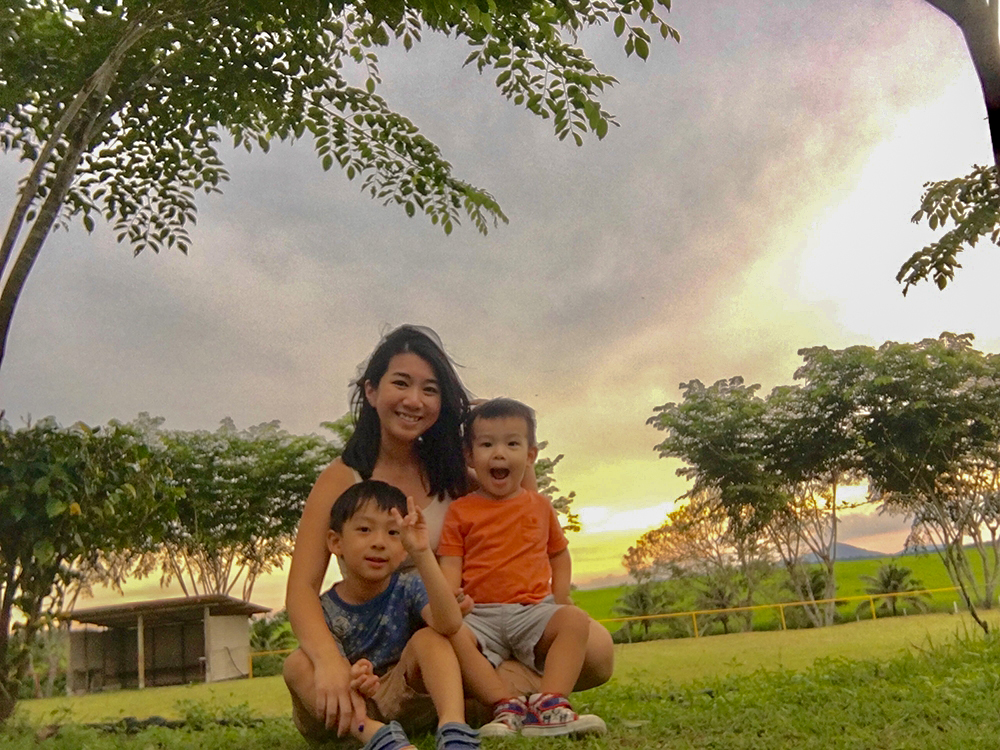Lin Peimin
Peimin has 2 children and strives towards making simple, daily activities a true joy for them to engage in, to develop their confidence to have a go at things, and to explore different mediums to express their ideas and individuality.
 The transition from preschool to primary school is a big milestone, especially so, if like me, your child was immersed in a play-based personalised learning environment, and now has to enter a structured, formal, very academically driven primary school environment.
The transition from preschool to primary school is a big milestone, especially so, if like me, your child was immersed in a play-based personalised learning environment, and now has to enter a structured, formal, very academically driven primary school environment.
The academic pressure and expectations were new to my son. I wondered if he would be able to cope. I feared he was not prepared enough.
Here’s what I learnt in our first 6 months of primary school.
- Patience. In the first weeks, I couldn't help but notice that my son was a
 reluctant reader. He was flipping through books, not reading. He struggled with spelling lists. It didn’t help that it was compulsory for him to take on Higher Chinese. Though I knew each child is different, I had inevitable flashes of doubt around his foundations. I went with my intuition and gut instinct that he was not “slower” than the rest. That he simply needed some time. So apart from encouraging him to read more and buying books aligned with his interests, I did not pressure him further in developing literacy skills. Now, 5 months into primary 1, he is almost always scoring full marks in spelling, and enthusiastically reading independently. Thinking back, he needed time to adjust to his new routine and friends; and academic performance was, of course, not his focus. It shouldn't have been mine either. I am glad I did not stress myself (and him) over spelling lists. At his own time, own pace, he is now flourishing. In both English and Chinese!
reluctant reader. He was flipping through books, not reading. He struggled with spelling lists. It didn’t help that it was compulsory for him to take on Higher Chinese. Though I knew each child is different, I had inevitable flashes of doubt around his foundations. I went with my intuition and gut instinct that he was not “slower” than the rest. That he simply needed some time. So apart from encouraging him to read more and buying books aligned with his interests, I did not pressure him further in developing literacy skills. Now, 5 months into primary 1, he is almost always scoring full marks in spelling, and enthusiastically reading independently. Thinking back, he needed time to adjust to his new routine and friends; and academic performance was, of course, not his focus. It shouldn't have been mine either. I am glad I did not stress myself (and him) over spelling lists. At his own time, own pace, he is now flourishing. In both English and Chinese!
- Reflection. How do you deal with societal pressure to send children for tuition and enrichment
 classes, resulting in overscheduling? As cliche as it sounds, only you know what’s best for you and your child. Reflect on your intentions. For me, I ask myself - Am I doing this because ‘I should’ or because ‘I want to’? Are the actions I am taking honest to my beliefs and values, or simply conforming to social expectations and self-imposed obligations? I truly believe that critical reflection can transform one’s parenting style. Read: Parenting Tips: Critical Reflection And Why Is It Important?
classes, resulting in overscheduling? As cliche as it sounds, only you know what’s best for you and your child. Reflect on your intentions. For me, I ask myself - Am I doing this because ‘I should’ or because ‘I want to’? Are the actions I am taking honest to my beliefs and values, or simply conforming to social expectations and self-imposed obligations? I truly believe that critical reflection can transform one’s parenting style. Read: Parenting Tips: Critical Reflection And Why Is It Important?
- Honesty. Be honest and open with your children about your intentions and your feelings. When you schedule “homework time” for your child, or decide to send your child for tuition or even ask him/her to “eat your greens”, explain why you’re doing so. Not just “because I said so”, but your aspirations, priorities and concerns. I found myself having the best conversations with my son when I speak to him as a respected peer; when I open up to him and verbalise my concerns be it around his social skills or his academics. More often than not, he responds similarly by sharing his experiences and feelings. Simply being honest and open has allowed me to form a friendship with my son based on trust and respect.
Today, my son loves going to school every day. While my fears are still there and are all valid, I am no longer afraid of them. An integral part of maintaining sanity in this journey is to expect the unexpected. Be open to the possibility of things not going how you expect them to because chances are they won’t. But when nothing is certain, everything is possible!

